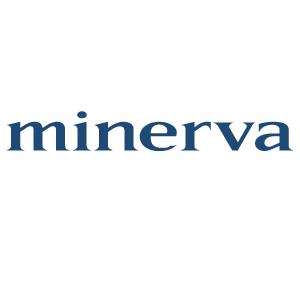23 Superpowers of New Board Members
As the director of your nonprofit, one of the many roles you are tasked with is to enlist amazing board members. Finding interested candidates is a challenge all by itself, but what should these people be expected to do? What superpowers should they bring to the table? Just having a group of warm bodies around the table at your meetings is not the goal. That scenario ends up looking like this:
They attend meetings, but—
· Are not engaged.
· Do not contribute financially.
· Do not promote the cause of your nonprofit to the public. In fact, it seems they may even be confused about what your specific cause is and what you do.
· Block progress.
· Have a disagreeable attitude.
Or, perhaps they don’t attend meetings at all or not very often.
Perhaps before you even begin the process of finding new board members, take time to assess who is already on your board. Why are they there? Are they serving the organization as needed, expected or beyond expectations? What kind of member is missing currently from your board? It’s time to go find those people.
What if you could enlist the perfect board member? What would that person be like? What are their qualifications, traits and disposition – their superpowers?
You know that to truly be a great nonprofit board member requires having good character, a strong commitment to the cause, the gift of time, and a willingness to use personal and professional resources to advance the organization’s mission.
Board members you search for are competent, trustworthy, experienced and compatible. The individuals serving on your board carry a heavy weight. They are your governing body and are legally accountable for organizational actions. Before you even begin searching for new members, make sure you already have rules in your bylaws that list specific responsibilities of board members and how members are added or dismissed.
Who is that person? Decide in advance if you need to add to your board people who bring diversity, specific skill sets, or a specific age range currently not represented. You always want to strive for balance in all these areas on your board.
Where is that person? Get recommendations from your current board members. Look at people who have been involved in your organization already. Find them serving on school parent-teacher committees, leading in your faith community or city organizations. In advance of asking a person to be a board member, invite her to serve on a committee or lead in some area of an event, fundraiser or other short-term organizational activity. Observe how he illustrates items from your list.
Ask your selected candidates their interest and if favorable, ask them to complete an application.
Below is a list of 23 questions you will want to consider in your new board member pursuit. It will reveal their “superpowers.” As you go through the process, you are seeking that perfect board member that you will enjoy working with, who brings insight and creativity to your meetings and represents your mission with dignity, and respect and brings positive results.
You already know that no one is perfect or will have all of the traits listed. But decide in advance what is non-negotiable. Remember that everyone brings their own list of strengths and weaknesses.
As you interview and consider potential board members, answer these revealing questions. Is he or she…
__ 1. Honest? Shows integrity and unyielding ethics?
__ 2. A hard worker? Continually builds and enhances the public’s trust and does the right thing, whatever that is?
__ 3. Innovative?
__ 4. Compassionate with others?
__ 5. Understanding of the purpose of your organization?
__ 6. Passionate about your organization’s mission and vision?
__ 7. Able to explain succinctly why your organization exists?
__ 8. Prepared to offer several ways people can be involved in your organization that will make a difference?
__ 9. Prepared for meetings?
__ 10. A forward thinker?
__ 11. Equipped to plan thoroughly?
__ 12. Able to set reasonable and attainable goals?
__ 13. Understanding of good business and organizational practices?
__ 14. Willing to make financial contributions?
__ 15. A relationship builder?
__ 16. An active listener?
__ 17. Open to new ideas?
__ 18. Aware of how to govern by not micro-manage?
__ 19. Demonstrate support for plans, but not afraid to voice their own opinions?
__ 20. Willing to keep learning about ways your organization can be even more effective?
__ 21. Willing to be a cooperative team player?
__ 22. Possess a contagious positive attitude?
__ 23. Exemplify servant-leadership?
Once you have secured your new board member, you want to do all you can to help them be successful and keep them involved. To do that, start with an orientation that covers all expectations and requirements.
When your process is completed and your new board member is in place you will have onboarded #23--a servant-leader. “The servant-leader is servant first…. It begins with the natural feeling that one wants to serve…first. Then conscious choice brings one to aspire to lead. [This] is sharply different from the person who is leader first…for [this person] it will be a later choice to serve -- after leadership is established…. The difference manifests itself in the care taken by the servant-first to make sure that other people’s highest priority needs are being served.” --Robert Greenleaf, in The Servant as Leader
Imagine what your board would be like if they had all 23 characteristics above? What would your board accomplish if they were like that? What is missing from the list above? What would you add or delete? Please reply with your comments.
Sources:
https://www.nonprofitpro.com/post/exceptional-board-members-clear-expectations/
https://bloomerang.co/blog/8-characteristics-of-an-outstanding-board-member/
https://www.councilofnonprofits.org/tools-resources/finding-the-right-board-members-your-nonprofit
